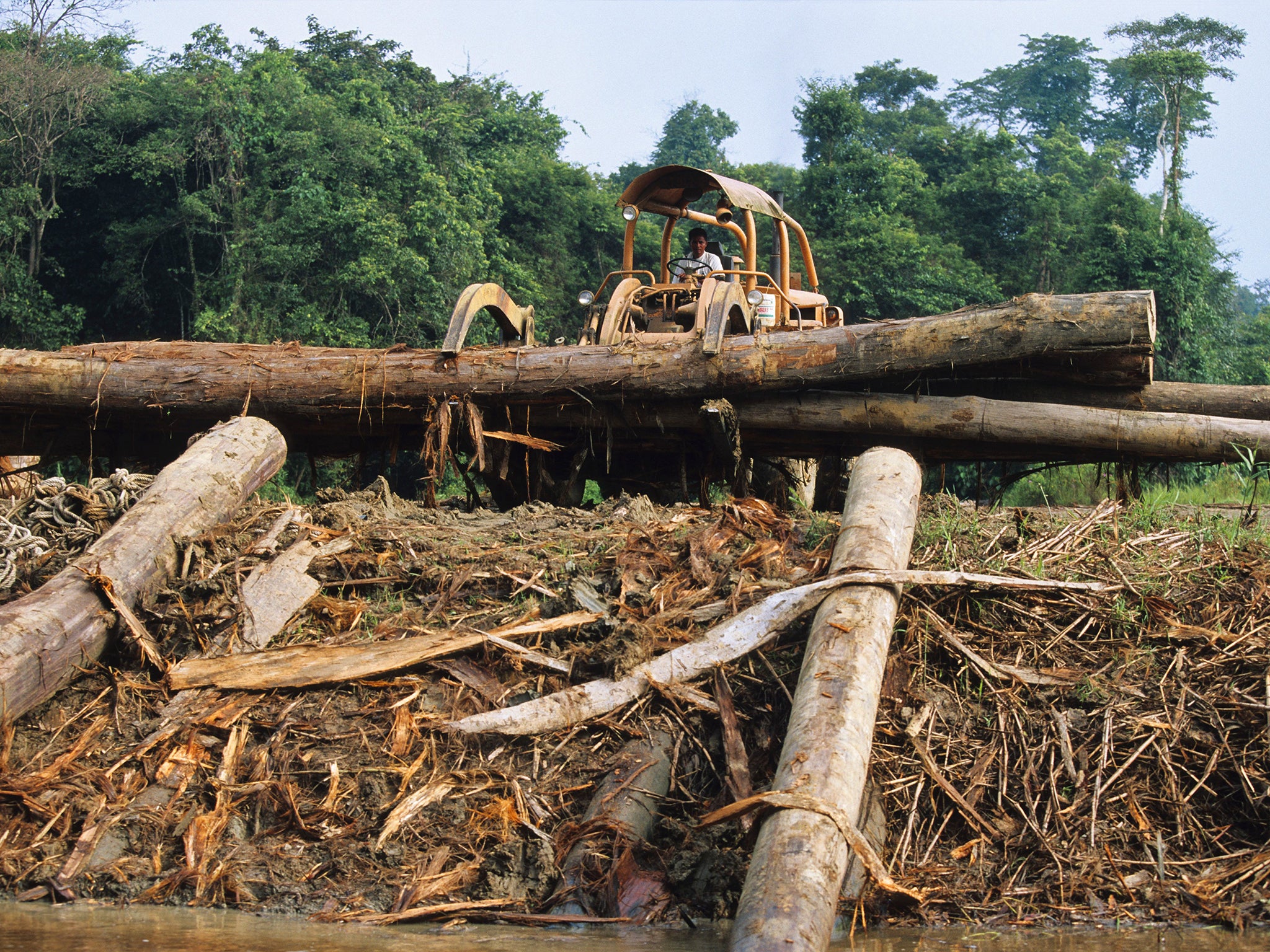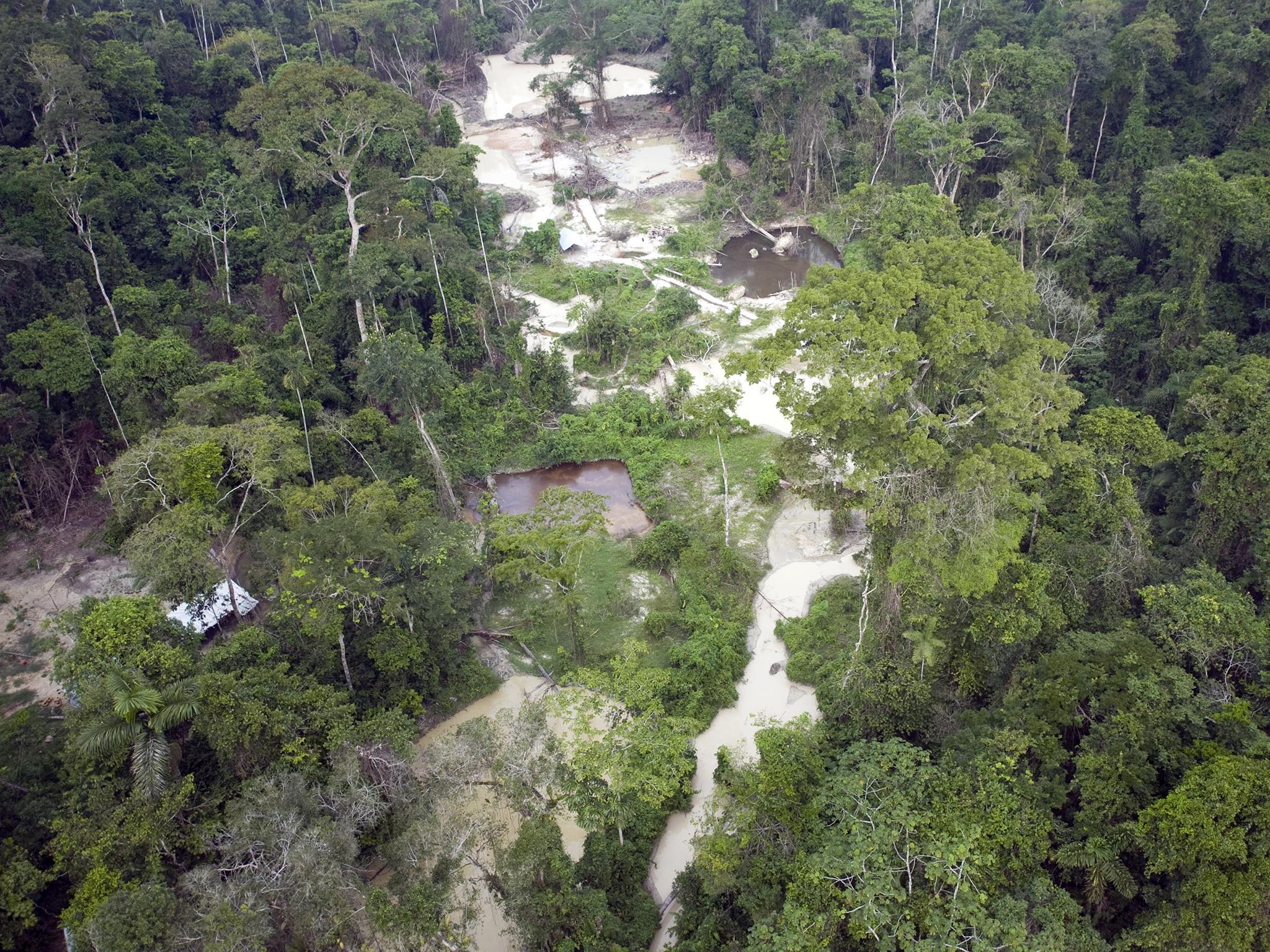Environmental activists 'being killed in record numbers' after at least 116 die in 2014 - report
People have died opposing logging, hydropower, mining and land disputes

At least 116 environmental activists died last year while campaigning against mining, logging, water and land grabs, according to a report.
The number of deaths is rising, UK-based group Global Witness reported, with two people dying on average every week – up a fifth on 2013.
Some have been shot by police during protests or gunned down by hired assassins, its research found, while many more activists are threatened by the companies they oppose.

According to the "How Many More?" report, the death toll could be far higher as the remote location of clashes in villages and jungles means many are not officially recorded.
Nearly three quarters of the known fatalities were in Central and South America, with Honduras being the most dangerous country per capita and Brazil, Colombia and the Philippines also seeing high numbers of deaths.
Around 40 per cent of those victims were indigenous and involved in disputes over hydropower, mining, logging, land disputes and water.
“In Honduras and across the world environmental defenders are being shot dead in broad daylight, kidnapped, threatened, or tried as terrorists for standing in the way of so-called development,” said Billy Kyte, a campaigner at Global Witness.
“The true authors of these crimes – a powerful nexus of corporate and state interests – are escaping unpunished. Urgent action is needed to protect citizens and bring perpetrators to justice.”

Many cases have not been legally resolved but suspected killers include members of paramilitary groups, police, private security guards and the military.
Global Witness is calling on governments and international bodies to monitor, investigate and punish crimes against activists and for Honduras in particular to address alleged abuses before the UN Human Rights Council.
The country has seen 111 known killings between 2002 and 2014, the report said. An indigenous activist in Honduras, Berta Cáceres, the winner of the 2015 Goldman Environmental Prize, said she is persecuted by supporters of a dam.
“They follow me. They threaten to kill me, to kidnap me, they threaten my family. That is what we face,” she said.
Three of her colleagues have been killed since 2013 after resisting the Agua Zarca dam on the Gualcarque River, which activists claim threatens to cut off a vital water source for hundreds of indigenous Lenca people.
Shahed Kayes, an activist in Bangladesh, told Global Witness he was threatened and beaten by around 40 people believed to be involved in illegal sand extraction.
“You are fighting against us and we’ve lost lots of money because of your movement,” he claimed he was told.
“We made the mistake of not killing you before; this time we will kill you. We will cut the veins in your wrists and legs, tie your hands and legs together and throw you in the river.”
He heads a local Illegal Sand Extraction Prevention Committee, which campaigns against practices the group says damages the community’s land and fishing waters.
Global Witness said violence and intimidation often went hand-in-hand with the criminalisation of protests, application of counter-terrorism laws, restricted freedom of expression and lax environmental protection laws.
“Environmental defenders are fighting to protect our climate against ever-increasing odds,” said Mr Kyte.
“Now more than ever we need to start holding governments and companies to account for the rising death toll on our environmental frontiers.
“The secrecy around how natural resource deals are made fuels violence and must end. It’s time for the international community to stand up and take notice.”
Join our commenting forum
Join thought-provoking conversations, follow other Independent readers and see their replies
Comments
Bookmark popover
Removed from bookmarks